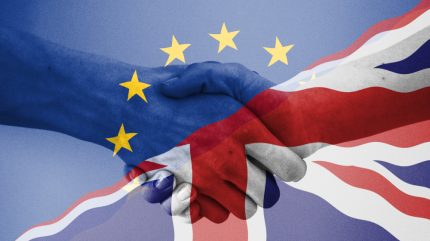
A new trade agreement between the United Kingdom and the European Union has been broadly welcomed by British retailers, who say it will ease supply chain pressures and help keep food prices stable.
The deal, announced by the government on 19 May, removes several post-Brexit trade barriers, including veterinary checks on food imports, and is expected to deliver a long-term economic boost.

Discover B2B Marketing That Performs
Combine business intelligence and editorial excellence to reach engaged professionals across 36 leading media platforms.
Reduced checks set to ease supply chain costs
The removal of veterinary checks on food imports has been described by the British Retail Consortium (BRC) as a significant development for the retail sector.
Helen Dickinson, Chief Executive of the BRC, said the measure would “help keep costs down and create greater security in retail supply chains”, ensuring the continued availability of essential food imports for UK consumers.
Retailers have long expressed concern over the added costs and delays caused by post-Brexit checks on goods entering the UK from the EU, particularly perishable items.
The new agreement addresses these concerns by streamlining border processes, a move expected to have a stabilising effect on food inflation and retail logistics.

US Tariffs are shifting - will you react or anticipate?
Don’t let policy changes catch you off guard. Stay proactive with real-time data and expert analysis.
By GlobalDataRetailers trading with EU to benefit from less bureaucracy
Retailers operating both in the UK and EU markets are set to benefit from a reduction in paperwork and border friction.
According to Dickinson, the changes represent a “huge reduction in the unnecessary processes, paperwork and administrative burden” faced by businesses exporting goods into the EU. This, she added, will support the competitiveness of UK businesses in their largest overseas market.
Exporters have faced a range of non-tariff barriers since the UK’s departure from the EU’s single market, including customs declarations, health certificates and rules of origin checks.
The new agreement simplifies several of these requirements, potentially unlocking growth for retailers and exporters.
Call for further alignment on product standards
While the trade agreement marks a significant step forward, retail leaders are urging further collaboration between the UK and EU to align standards on environmental and product safety regulations.
Dickinson said the industry was “keen to see the government and the EU continue to develop our future trading relationship for the benefit of consumers both in the UK and in Europe”.
The government has stated that the agreement could contribute up to £5 billion to the UK economy by 2040, and officials see it as part of a broader strategy to improve post-Brexit relations with European partners.
However, experts note that ongoing regulatory divergence could still pose challenges unless further agreements are reached.
The retail sector, which relies heavily on frictionless trade with the EU for both imports and exports, will now be watching closely for signs of continued progress in UK-EU trade talks.





